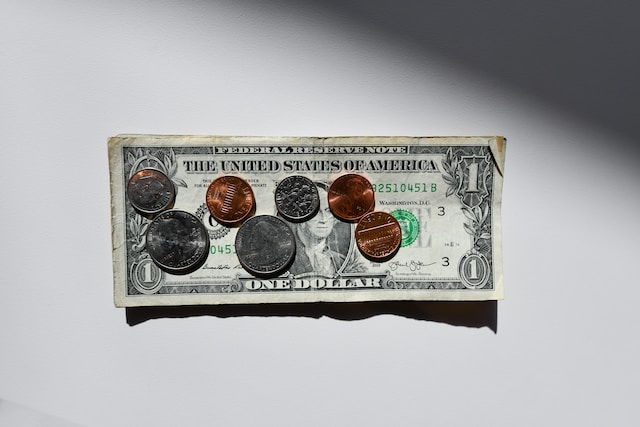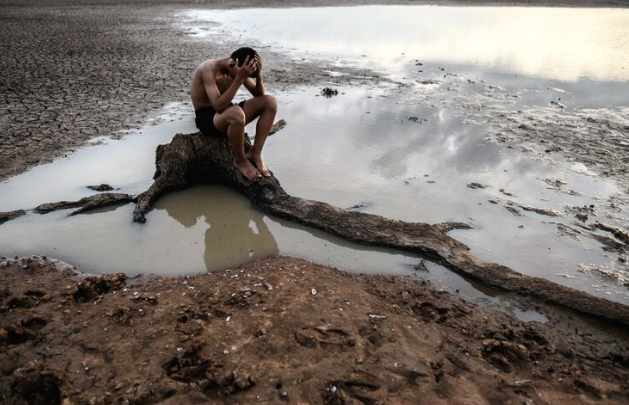News
Rajkotupdates.News: An important interest rate announcement has been made by the government

Wednesday was the ninth consecutive time that interest rates have been increased by the Federal Reserve. Despite the difficulty in the banking sector created by the failure of two regional banks, they did this to keep combating excessive inflation. All of the Fed’s policymakers agreed that the benchmark rate of interest should be raised by one-quarter point, to 4.875%. People will pay extra for things like vehicle loans and credit card balances as a result of this.
Some on the Federal Reserve’s rate-setting committee believe an increase in interest rates is necessary to maintain price stability. New forecasts released on Wednesday indicate that rates would rise by an average of 0.25% by the close of the year. Federal Reserve officials said in a statement, “The Committee’s thinks that some further tightening of policies may be in order.”
The bank failures had triggered a warning
In light of the recent collapse of Silicon Valley Banks and Signature Bank, which occurred earlier this month, some economic experts had urged the central bank to pause its interest rate increases. However, things appeared to be improving in the banking sector in recent days. On Tuesday, Janet Yellen, the secretary of the Treasury, indicated that large withdrawals from local financial institutions have “stabilized.”
The Fed said in its fiscal policy statement, “The U.S. banking infrastructure is robust and stable.”
However, consumer costs are rising at a rapid pace. The annual inflation rate was 6% in February. Although this was over the Fed’s target of 2%, it was down from 9.1% in June of previous year. The Fed is particularly concerned about the rising prices of services like airline tickets and television subscriptions.
After the meeting, Fed president Jerome Powell told reporters, “My colleagues and I are very conscious that rising prices hurts people’s ability to buy items, especially those who have the least willing to pay more for basics like housing, food, and transportation.”
The Federal Reserve Is Under Fire from Bank Failures
The Federal Reserve is also under scrutiny for its role in supervising the two collapsed banks. There have been rumors for a long time that the Federal Reserve found fault with Silicon Valley Bank’s risk management practices. A large number of customers attempted to withdraw their funds from the California bank, but the issues were not resolved and the bank had to be seized by the U.S. government.
Fed Vice Chairman for Inspection Michael Barr: “We need to be modest and do an extensive and thorough examination of how we monitored and regulated this firm.”
Barr is conducting the research, and he promised to provide his findings by May 1. Next week, he’ll also address two Congressional committees. A third-party probe into the Federal Reserve’s role in the banking crisis has been requested by several. To reporters on Wednesday, Powell said, “It’s a 100% certain thing there’s will be independent investigations.” We have no problem with the traditional procedure of investigating a failed bank.
Both Democratic Senator Elizabeth Warren of Massachusetts and Republican Governor Rick Scott of Florida have proposed that the Fed’s current inspector general be substituted by an external inspector appointed by the president.
Banking turmoil has increased concerns of a recession
The Federal Reserve will have to consider the impact of the collapse of both of the regional banks on the economy when deciding how much to increase rates of interest in the future.
Other financial institutions will likely be more selective in making loans following the collapse of Silicon Valley Banks and Signature Bank. The Federal Reserve warned that “recent actions are likely making it tougher for individuals and companies to get credit,” which would have negative effects on economic activity, employment, and inflation. The magnitude of these consequences is unclear.
When credit becomes more expensive to obtain, like when rates of interest rise, economic expansion slows. According to Nationwide’s senior economist Kathy Bostjancic, “Credit is the fuel that enables small enterprises and the country’s economy run.”
She warned that a significant drop could occur if access to the credit was suddenly revoked. That may aid the Fed’s efforts to maintain price stability. However, it also increases the probability that a recession would hit the country.
Officials at the Fed, though, do not anticipate a slowdown. On Wednesday, members of the price-setting committee projected annual economic growth of 0.4%. They anticipate that the unemployment rate will increase from February’s 3.6% to March’s 4.5%.
News
scoopupdates .com | Your Go-To News and Lifestyle Hub

Introduction
Are you looking for the top site to keep up with the newest news, lifestyle, and entertainment stories? Look no further than scoopupdates .com! Discover the most up-to-date news, expert comments, and lifestyle ideas all in one place at this comprehensive online hub.
Everyone from casual readers in need of quick updates to experts in search of in-depth analysis may find what they need on scoopupdates.com. Keep reading to learn about the features, the unique selling point of this platform, and how it satisfies user needs.
What is scoopupdates.com?
When looking for up-to-date information on a variety of subjects, ScoopUpDates is a great internet resource. The site curates content with care to keep its visitors engaged and informed, whether it’s whispers from the entertainment business, health suggestions, or breaking news from across the world.
One of its selling points is the high-quality information it gives. It avoids confusing customers with technical words and complex storylines, all while focussing on accuracy.
Why Choose scoopupdates.com?
- Wide Range of Topics: Global, tech, health, entertainment, business, and lifestyle news are all covered by scoopupdates.com. As a result, there will be something for everyone.
- Timely Updates: Thanks to the quick and reliable news updates, you may be informed about the most recent events in the world of current affairs.
- User-Friendly Platform: The site is very easy to use because of its minimalist design. You will find all the results you need with just a fast search.
- Accuracy You Can Trust: Due to its fact-checking policies and emphasis on content from reputable sources, scoopupdates.com is widely esteemed for its reliability.
What Can You Find on scoopupdates.com?
1. Breaking and Global News
If you are seeking global news updates in real-time, scoopupdates.com is the place to go. It covers major events in politics, economics, and international relations to keep you informed about the state of the globe.
For example:
- Shifts in major global markets
- Shifts in power and widespread voting
- Updates on significant cases of natural disasters or human rights breaches
2. Technology and Innovation
Is being ahead of the curve something you strive for, or are you more of a tech enthusiast? On scoopupdates.com, you can find a technology section where you can peruse articles on recent innovations, reviews of different devices, and news regarding the tech industry.
Sample Content Topics:
- Reviews on the latest smartphones and laptops
- AI developments and their impacts on the workforce
Updates on SpaceX launches and advancements in space exploration
3. Entertainment and Pop Culture
Read up on the newest celeb news, red carpet reports and suggested TV shows and flicks. For all the latest news and gossip from Hollywood and beyond, scoopupdates.com is the place to be.
Sample Articles:
- 10-minute workout routines for busy professionals
- Tips for managing stress and boosting mental clarity
- Latest breakthroughs in medical technology
4. Health and Wellness
More than ever before, you need to make self-care a top priority. The health and wellness section of scoopupdates.com has articles, professional advice, and practical tips that may help you prioritise your physical and mental health.
Topics Include:
- Upcoming seasonal fashion trends
- Hidden gems and travel bucket list destinations
- Minimalistic living tips
5. Lifestyle and Trends
Look no farther than scoopupdates.com, your go-to resource for all things lifestyle, including anything from vintage apparel to innovative food. From suggestions for solitary adventure spots to advice on interior design, this section is here to help you brighten up your life.
Topics Include:
- Upcoming seasonal fashion trends
- Hidden gems and travel bucket list destinations
- Minimalistic living tips
6. Business and Finance
For companies and professionals, scoopupdates.com’s business section is a gold mine of information. Gaining access to expert information, such as recommendations for financial planning and the most recent market trends, enables users to make well-informed decisions.
Examples Include:
- Insights into crypto and blockchain technology
- Best practices for small business leaders
- Market trends that could impact global economies
Highlights of scoopupdates.com
What sets scoopupdates.com apart is the dedication to the user experience and the ongoing attempt to enhance it. Here are a few other reasons why our site is relied upon daily by thousands of individuals.
1. Expert Contributors
Specialists in many fields from throughout the globe work together with scoopupdates.com to provide you reliable, high-quality opinions and insights.
2. Engaging Community
With its regulated comment sections and robust social media presence, scoopupdates.com goes beyond just reporting the news; it helps viewers meet people who share their interests.
3. Customizable Notifications
Sign up for push notifications or subscribe to our email list. You have the option to customise your notifications to just include the categories that you find relevant.
How to Make the Most of scoopupdates.com
1. Sign Up for Alerts
Get instant alerts anytime new content is uploaded. When you do this, you will never again have to wonder what matters most to you.
2. Follow on Social Media
You can find scoopupdates.com on several social media sites, including Facebook, Instagram, and X. If you choose to follow these accounts, you can be certain that new updates will be added to your feed every day.
3. Bookmark the Blog
Bookmarking is a great way to preserve links you visit often or lengthy articles for later.
4. Contribute Content
If you are an authority in your industry, scoopupdates.com is looking for guest blogs and insights that are of high quality. Make your voice known by contributing!
Final Thoughts and Your Next Steps
In comparison to other news websites, ScoopUpDates .com offers more. The large number of categories, trustworthiness, and pleasant user experience have made it a hub for dependable, high-quality material.
Instant access to breaking news, weekend lifestyle inspiration, and expert analysis of tech and business are all at your fingertips.
News
Raging Elements: Exploring the Risks of PoorWeather

Weather, an omnipresent force, can be both a source of beauty and a harbinger of danger. From serene sunny days to raging storms, the elements shape our environment and influence our daily lives in profound ways. However, when the weather takes a turn for the worse, it can pose significant risks to human safety, property, and infrastructure. In this blog post, we’ll delve into the various dangers associated with poor weather conditions, shedding light on the risks they pose and how individuals can mitigate them.
Understanding the Threats
Poor weather conditions encompass a wide range of phenomena, including severe storms, extreme temperatures, heavy rainfall, snowstorms, and more. Each of these weather events brings its own set of hazards, capable of wreaking havoc on communities and ecosystems alike.
Severe Storms:
Among the most formidable weather phenomena are severe storms, which include hurricanes, tornadoes, and thunderstorms. These tempestuous events can unleash powerful winds, torrential rains, and destructive lightning, causing widespread damage to buildings, vehicles, and landscapes. Flooding, flying debris, and electrocution hazards are common during severe storms, posing significant risks to both life and property.
Extreme Temperatures:
Extreme heatwaves and cold snaps are becoming increasingly common due to climate change. High temperatures can lead to heat-related illnesses such as heatstroke and dehydration, particularly in vulnerable populations like the elderly and young children. Conversely, extreme cold can cause frostbite, hypothermia, and even death if proper precautions are not taken.
Heavy Rainfall and Flooding:
Persistent rainfall, especially during storms or monsoon seasons, can result in flooding, which is one of the most destructive natural disasters. Floodwaters can inundate homes, roads, and infrastructure, leading to property damage, displacement of communities, and loss of life. Flash floods, in particular, can occur rapidly with little warning, making them especially dangerous.
Snowstorms and Blizzards:
In areas susceptible to frigid temperatures, snowstorms, and blizzards have the potential to halt daily life. Intense snowfall accompanied by fierce winds can result in blinding snowstorms, rendering travel perilous and contributing to collisions on roadways and highways. Moreover, substantial snow buildup may precipitate roof collapses and power failures, compounding the hazards linked with these climatic occurrences. In such situations, individuals facing legal concerns, such as truck accidents, may benefit from consulting a qualified truck accident attorney in Utah for guidance and assistance.
Mitigating the Risks
While we cannot control the weather, there are steps individuals and communities can take to mitigate the risks associated with poor weather conditions.
Preparedness:
Being prepared for adverse weather is crucial for minimizing its impact. This includes staying informed about weather forecasts and advisories, having an emergency kit stocked with essentials such as food, water, medications, and flashlights, and having a plan in place for evacuation or sheltering in place if necessary.
Building Resilient Infrastructure:
Investing in resilient infrastructure can help communities withstand the impact of severe weather events. This includes building codes that account for wind and flood hazards, constructing stormwater management systems to mitigate flooding, and reinforcing critical infrastructure such as bridges and power lines to withstand extreme conditions.
Climate Adaptation:
Adapting to the changing climate is essential for reducing the long-term risks associated with poor weather conditions. This may involve implementing sustainable land-use practices, protecting natural ecosystems that provide natural buffers against extreme weather, and reducing greenhouse gas emissions to mitigate the severity of climate change.
Conclusion
Poor weather conditions pose significant risks to human safety, property, and infrastructure. From severe storms and extreme temperatures to heavy rainfall and snowstorms, the dangers associated with adverse weather are diverse and far-reaching. However, by understanding these risks and taking proactive measures to mitigate them, individuals and communities can better prepare for and adapt to the challenges posed by the raging elements. Through collective action and resilience, we can build a safer and more sustainable future in the face of an ever-changing climate.
News
Brooklyn Nine-Nine Actor Andre Braugher Dead at 61

Andre Braugher Rumors about the demise of Andre Braugher, an actor with a long list of credits for his many roles, outstanding skill, and impact on the entertainment world, have lately circulated like wildfire. His acting career has been defined by outstanding performances in a variety of mediums, which have garnered him the utmost acclaim from fans across the globe.
Table of Contents
Brooklyn Nine-Nine and Braugher’s Role
A role that stands out in Braugher’s acting career is his role in the hit TV show “Brooklyn Nine-Nine.” He made a huge impression in his portrayal as Captain Raymond Holt, and audiences will never forget him. Braugher’s performance as the stern yet lovable captain struck a chord with viewers and propelled the show to new heights.
The Demise of Andre Braugher: A Report
Many admirers were shocked and saddened when news broke that Andre Braugher had died suddenly. At first, the news reports caused many to be confused and worried, which in turn prompted many to express their deepest sympathies and pay respect on various social networking sites.

Cause of Andre Braugher’s Death
It must be stressed, nevertheless, that these claims were completely untrue. Even Andre Braugher is doing OK. Speculation and doubts over the veracity of the news of his death ensued due to the dissemination of false information.
Remembering Andre Braugher’s Legacy
We must pause to honor Andre Braugher for his outstanding achievements in the entertainment sector, regardless of the false rumors. His effect on stage and screen, along with his talent and devotion, has been profound and has served as an inspiration to many.
Fans’ Reaction and Tributes
After hearing good news about Braugher, fans all around the globe expressed their relief and love for the famous actor. Many others took to social media to express their respect, thanks, and support for Braugher’s work and the impact he had on their lives.
Braugher’s Influence Beyond Brooklyn Nine-Nine
Along with his work on “Brooklyn Nine-Nine,” Andre Braugher has an impressive resume of roles and accomplishments. He has received praise and admiration from critics and fans for his flexibility as an actor, which has allowed him to thrive in a number of genres.
Speculations and Misinformation
False information about Braugher’s death unfortunately circulated online, demonstrating the risks of spreading false information in the modern day. In order to avoid causing unnecessary worry and confusion to the general population, it stresses the significance of checking information sources and facts before distributing them.
Addressing the Impact on Brooklyn Nine-Nine
There will be no effect on the future of “Brooklyn Nine-Nine,” as viewers can rest easy knowing that Andre Braugher’s health is being clarified. The series’ iconic status is due in large part to his performance and the camaraderie of the ensemble cast.
Reflections on Braugher’s Impact
Finally, the fact that the rumors about Andre Braugher’s death were unfounded demonstrated how much people adored and respected the talented actor, even though they created a brief uproar. It’s a little nudge to remember the living legends among us and to give thanks for everything they’ve done as they keep making the world a better place via their work.
Conclusion
Much beyond the people he played, Andre Braugher has left an indelible mark on popular culture. He left an indelible mark on the entertainment world and on the lives of those he touched.
Unique FAQs:
1. Q: Is Andre Braugher really deceased?
Answer: No, news of his death had been circulated recently. He is doing OK.
2. Q: What role did Braugher play in “Brooklyn Nine-Nine”?
A: His portrayal of the lovable yet stern Captain Raymond Holt was a hit.
3. Q: How did fans react to the false reports?
A: Braugher’s legion of devoted followers were elated and showered the artist with online tributes and words of encouragement.
4. Q: What is Braugher’s legacy in the entertainment industry?
His striking performances in a variety of roles solidified his position as a revered figure in the business, thanks to his varied talent.
5. Q: Will Braugher’s supposed death affect “Brooklyn Nine-Nine”?
A: No, the rumors about Braugher’s health have nothing to do with the future of the program.
